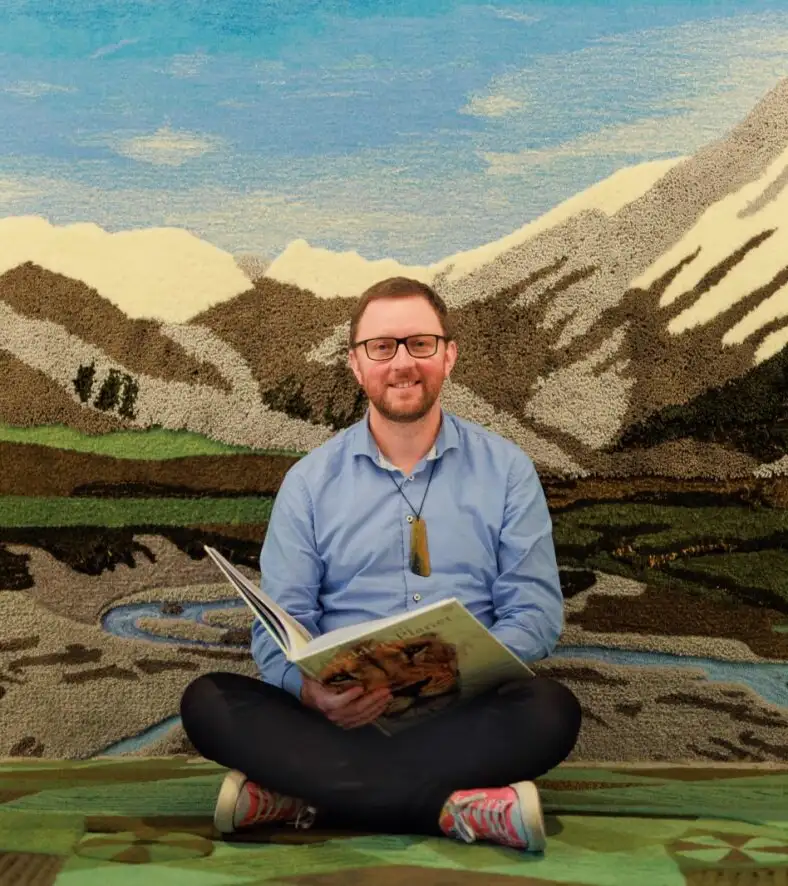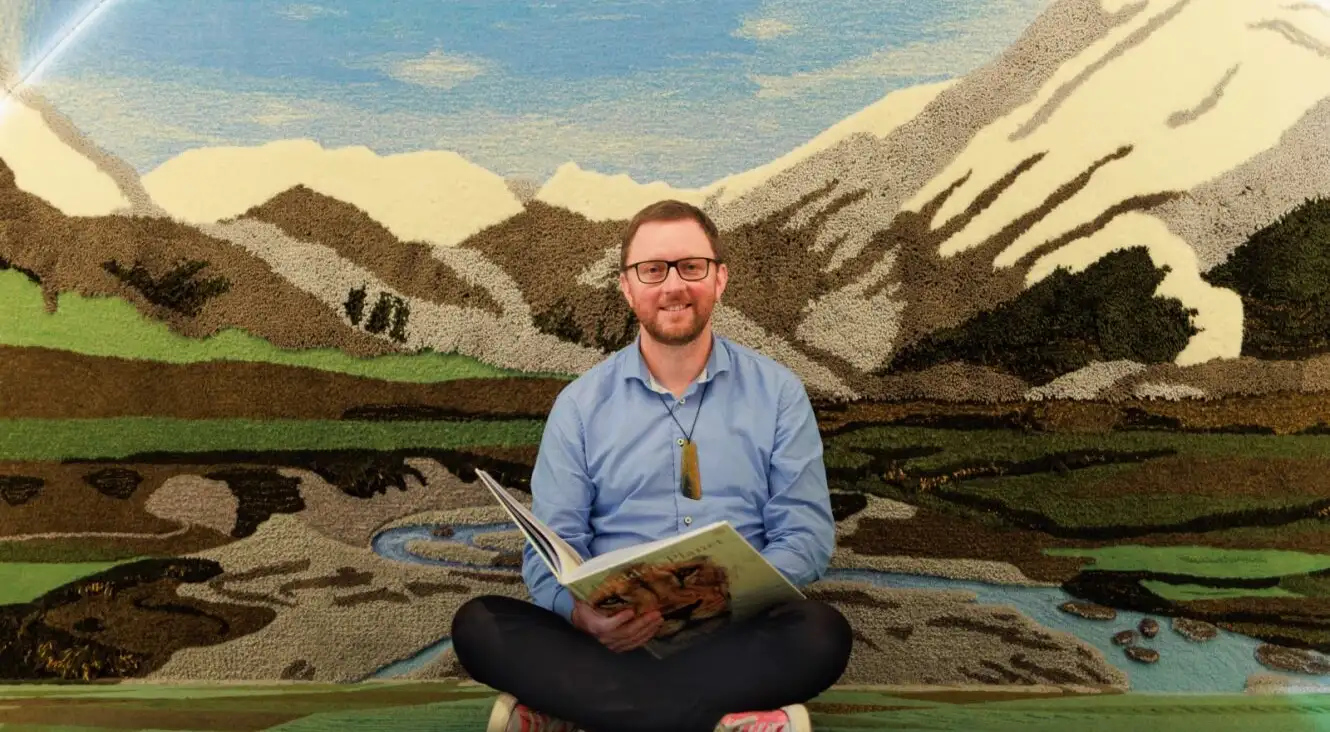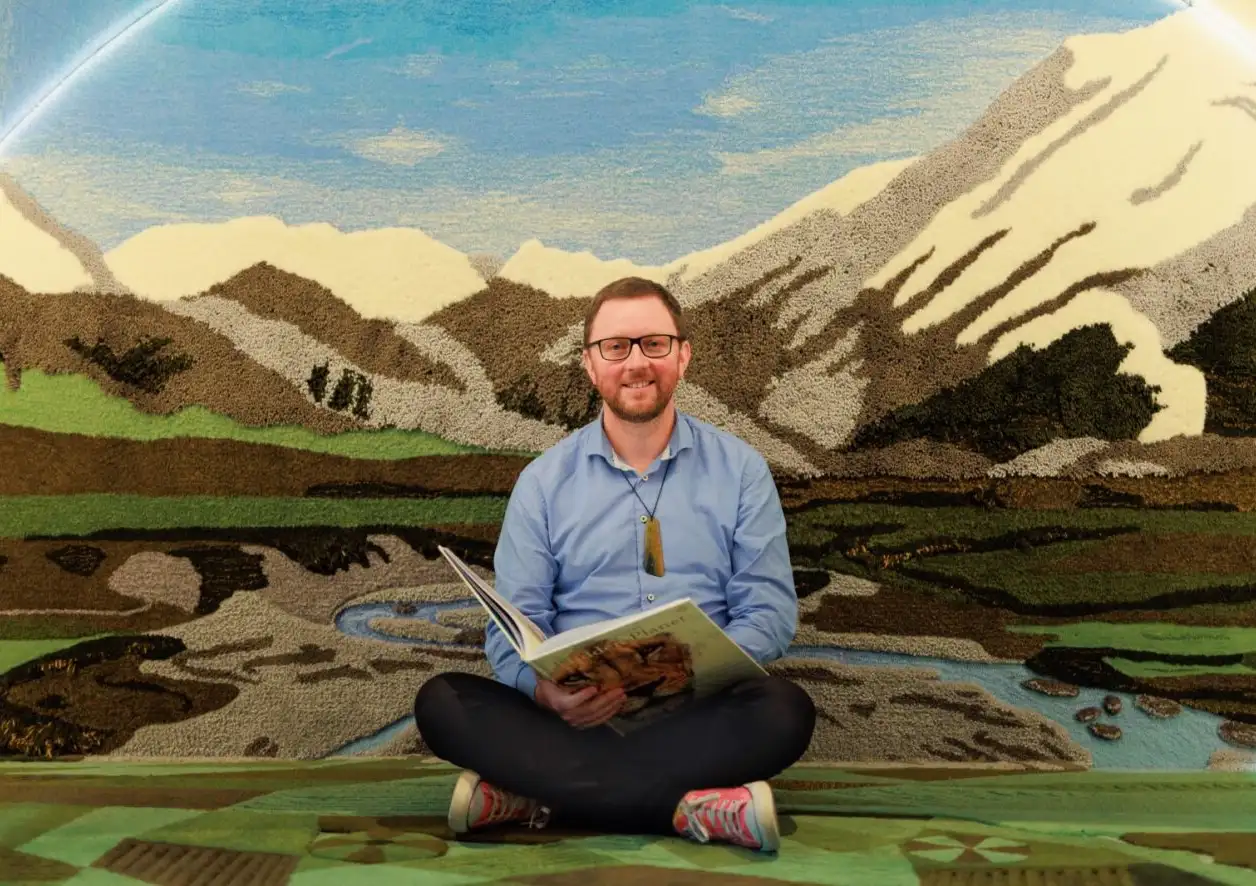Ngā kāhua a ngā māngai pōti
-
Elected representative profiles



Meet some local government elected members. Learn about their commitment to serving their communities.
Pera Paniora, Māori Ward Councillor Kaipara District Council
In 2022, Pera Paniora was elected as the first Māori ward councillor for Kaipara district, a position she finds exciting - and sometimes daunting - in its newness.
“The role itself comes with a lot of responsibility to uphold what is tika/right, and because it is the first of its kind, it means that there is no job description,” Pera says. “I have to feel my way through, and that’s scary at times, because I am not always going to get it right.” At the same time, she sees it as an opportunity. “It’s incredibly exciting and rewarding to be able to carve out a Māori flavour of councillor unique to the Kaipara.”
If anyone’s able to forge their own path, it’s Pera, who brings a wealth of experience to the role. A lawyer by profession, Pera currently works for her iwi Ngāti Whātua as a Senior Manager and in-house Legal Counsel. Before this, she spent six years practicing at a private law firm and has worked for the Ministry of Social Development and the University of Auckland - where she studied both law and arts (majoring in Political Science and Māori Studies).
In her spare time, Pera’s volunteered for a range of different kaupapa and initiatives over the years – including the Matike Mai led by the late Moana Jackson and Margaret Mutu, which culminated in the Matike Mai Report on Constitutional Transformation. And, crucially, she’s an avid cross-fitter, something that appears to be a common thread amongst her peers. “I am fairly certain that there are more cross fitting than non-cross fitting Māori Ward Councillors in Tai Tokerau,” she notes.
These multifaceted roles stand Pera in great stead at the council table. “It sounds a little bit cliché, but all of this experience has set a well-rounded platform that enables me to carry out my role,” Pera says of her journey to date. “I think it is very important to be able to communicate with people from all walks of life, but to also be able to advocate on behalf of others in an effective manner that will bring about change.”
Despite Pera’s abundance of experience and cross-fitting skills, she initially wasn’t sold on being a councillor. “To be frank, I didn’t want to run for council as I didn’t feel that I was “good enough”, or old enough, or enough of a role model,” she says. Fortunately, Pera had a solid group of people around her who knew she would do the job justice. “I was approached by a number of whanau, friends and community leaders whom I have great respect for, and who encouraged me to put my name forward,” she explains, adding, “I am born and bred in the Kaipara, all of my bones are here, and I am passionate about my people and our community. It wasn’t until I noticed a few tohu/signs that I sensed this was a path that had been chosen for me.”
As Māori Ward Councillor, Pera’s goals are to advocate for her people, for the protection and enhancement of te Taiao, and for more affordable housing. “There are opportunities to leave long-term legacies for our mokopuna in some of these areas,” she says. It’s this future-thinking that underpins a lot of Pera’s mahi, including when it comes to thinking about who eventually takes the reins from her. “I want to ensure that the next Māori Ward Councillor is culturally safe and well supported in the Māori Ward seat,” she says.
Pera brings these values to Te Maruata Rōpū Whakahaere, the Māori sub-committee of LGNZ’s National Council, which she’s a valuable member of. “The night before LGNZ’s annual conference, I got a text from a certain Mayor of the North stating that he thought I would be perfect for this role,” Pera says of how she got involved. She didn’t know what Te Maruata was yet, but she trusted Mayor Moko Tepania. “It turned out to be the best decision I have made so far in my term, because I have met some of the most amazing people and the strategic outcomes we have set genuinely excite me.” They excite LGNZ too.
It's Kaipara’s community spirit that Pera loves most about the rohe. There’s also no shortage of nearby ocean, lakes, maunga and ngahere, which she spends her downtime exploring. On a personal level, Pera’s goals are “to simply to focus on maintaining my hauora and that of my whanau,” she says. After all, you’ve got to make sure you look after number one when you’re giving so much to your community – something Pera does in spades.
Rachel Keedwell, Chair Horizons Regional Council
“I never imagined myself doing this job,” says Dr Rachel Keedwell of her role as Chair of Horizons Regional Council. “It had never featured in any career path that I had thought about – either real or imaginary – and shows that life takes twists and turns that you can’t anticipate!”
The twist that initially got Rachel interested in local government was when Horizons decided to scrap their entire biodiversity budget, in an effort to save money. “Luckily they ended up reversing it after strong public pushback,” she explains, “but it made it clear to me that although business and farming were well-represented around the council table, no one was speaking for the environment, despite the key role of a regional council being one of environmental advocacy.”
So Rachel got involved – and brought a huge amount of environmental expertise to the table. Long interested in ecology and conservation, she spent the best part of eight years at university studying these fields, and ended up with a bachelor's degree in Botany, a post-graduate diploma in Wildlife Management, and a PhD in Ecology. She then spent several years doing work as an ecological contractor, before taking a sidestep into the building industry.
This environmental focus is particularly crucial in Rachel’s council role, given the pressing challenge all councils – and humans – are dealing with right now. “The key issue we are facing is climate resilience,” says Rachel. “How do we ensure our communities are well-placed to deal with the challenges coming our way? Recent cyclones and weather events make it really clear that we are not currently well equipped – but who funds the work that is needed?”
These are all tough but important questions; ones Rachel says need to be worked through with communities to figure out the best way forward for everyone. Fortunately, councils are also well-placed to work through a lot of these issues. “Local government is right at the coal face when it comes to dealing with environmental challenges,” says Rachel. “There is so much local government can do to influence what is happening in our community and across the wider landscape."
Rachel’s certainly wasted no time making her own influence felt. “Since I’ve become chair, the council has shifted direction enormously in the climate change and biodiversity spaces, and in many other areas too,” Rachel says. “None of that would have happened without the 50% turnover we had at the council table, enabling new voices to have a say about a new direction.”
It’s simultaneously a privilege, fascinating journey and challenge being chair, Rachel says. “I get to work with amazing people, take part in exciting projects and grapple with some of the really, really tricky issues of our time,” she adds. The role – which has a close to full-time workload – allows her to get involved in council business in a far more detailed way that when she was councillor, which is rewarding in itself. “It’s satisfying to see the changes that have happened at Horizons since I have become chair,” she says, “and I look forward to what we achieve moving forwards.” So do we.
Rohan O’Neill, Deputy Mayor Nelson City Council
In 2019, then 19-year-old Rohan O’Neill-Stevens was elected as the youngest member of Nelson City Council, later advancing to the role of Deputy Mayor in 2023.
It’s exciting to see young people like Rohan in local government leadership, not least because they have the rare opportunity to engage with their peers in more unexpected places. “My highlight so far was on a (very rare) night out, finding myself holding what was essentially a constituency clinic in the back of a club on New Year’s Eve,” he says, “as a series of young people came up to share their aspirations and ideas for Whakatū Nelson. Not quite what I was expecting from my night, but a highlight nonetheless!”
As well as impromptu nightclub clinics, there’s a raft of reasons why it’s great to have young, elected members in our councils. If we want to connect with and represent our rangatahi (and we do), we need people in councils they can talk and relate to, people who will fight for their present and future. “Historically, local government has been dominated by older voices and those already relatively well off, which has skewed decision making towards those interests,” says Rohan, pointing out that if we want local government to deliver intergenerational decision making and to address the long-term issues facing us, “we need to ensure the voices of young people are heard loud and clear.”
It’s this long-term thinking that underpins Rohan’s mahi, who initially decided to run for council due to a mix of frustration and inspiration. "Frustration at the under-investment in our region and short-term decision-making that was failing our people,” he explains, “and inspiration for the potential our city holds and how we could deliver a city prepared for future challenges. Those are still the feelings that continue to motivate the mahi I do.”
A few months before being elected to council, Rohan returned from studying overseas. It was a formative experience, with his decision to run being shaped by shaped by seeing other countries’ and cities’ approaches to things like urban design, social inclusion and environmental outcomes. “I think the biggest help offered by these experiences is understanding that we are not alone in our challenges,” he says, noting that across the country and world, a lot of the same debates are happening. “We have a lot of opportunities to learn from the mistakes and successes of other regions, taking from the best and shaping those innovations to meet the specific needs of our unique communities.”
These days he’s busy carving out his own path as Deputy Mayor. “It can be an odd role, where in many ways the role is what you make it,” he says. “Unlike the Mayor, it has no specific powers or responsibilities (beyond acting as Mayor in their absence).” That said, there's plenty of opportunity to make it his own. “I love the role, which for me has involved ensuring councillor voices are heard and valued, while also progressing our relationships with external organisations, LGNZ, and community groups.”
One of these external activities is LGNZ’s Young Elected Members Committee, which Rohan is a valued member of. “Young people in local government still face a number of barriers, and as someone who has managed to get my foot in the door, I wanted to do my part to make it easier and more accommodating for those who come next,” Rohan says of his decision to get involved with YEM. “It’s a refreshing experience in local government to be working alongside other young people, and I hugely value the sharing of information and expertise from around the motu,” he says. “Though there remains lots of work to be done!” Thankfully, we have Rohan to help with it.